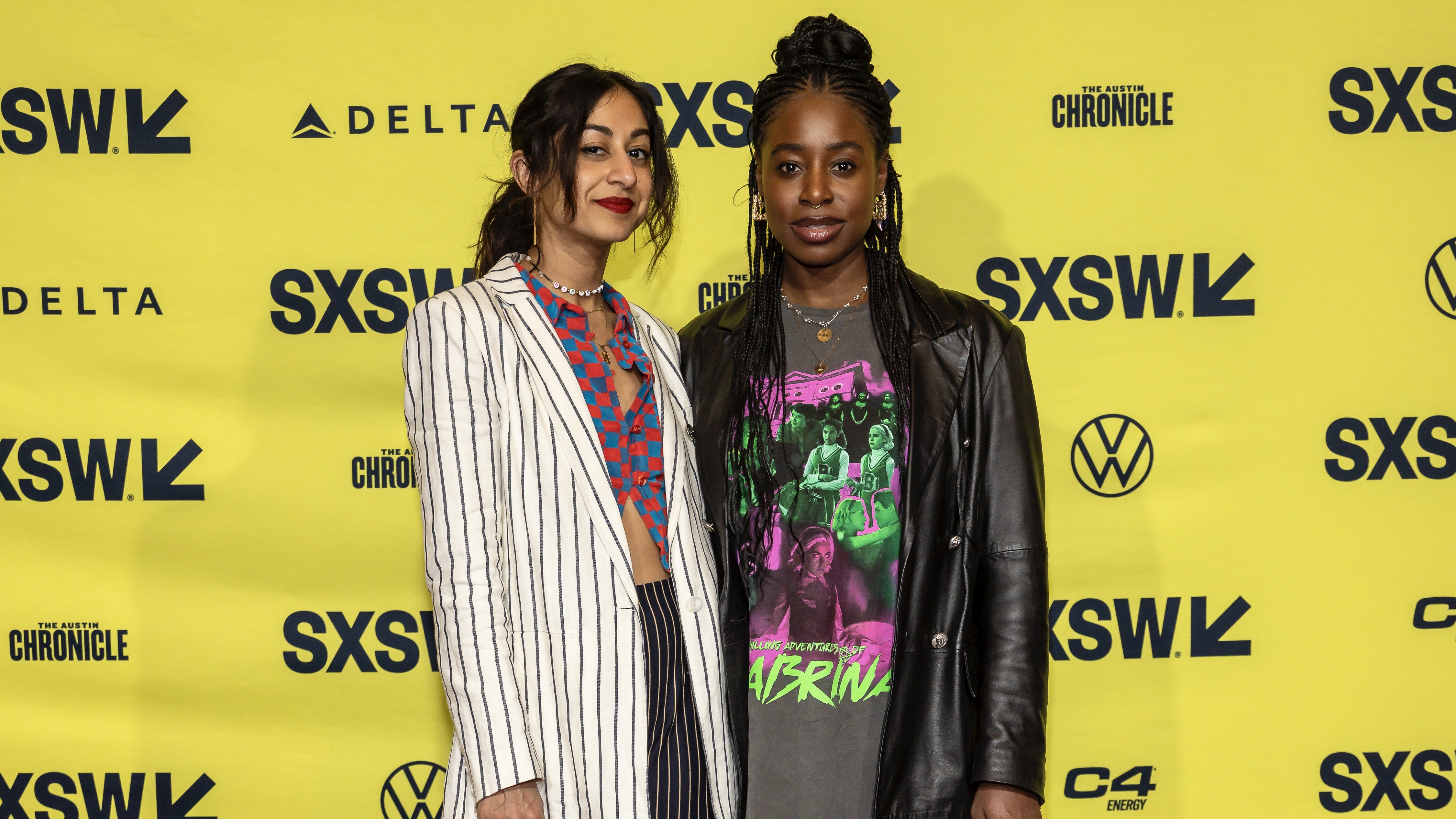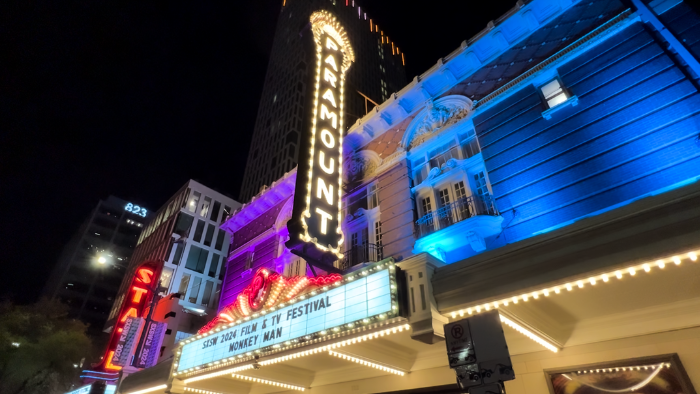
In Anu Valia’s full feature directorial debut “We Strangers,” the audience is faced with a hypothetical: “What would you do if one lie flipped your whole life upside down?” The film drops viewers into the life of contract cleaner Ray (Kirby Howell-Baptiste), who lives in Gary, Indiana. She’s hired by therapist Dr. Neeraj Patel (Hari Dhillon) to clean both his house and that of his mistress, Jean (Maria Dizzia.) Bored by the mundanity of mops and brooms, she follows an intrusive thought and tells Jean a lie: that she can see ghosts. This fib begins a chain reaction that has Ray in a new position of power over her employers.
Ahead of the film’s premiere at the South By Southwest Film Festival, Valia and Kirby spoke with Character Media about the project!

Character Media: Anu, you’ve directed short films, television series and now your first feature. How have your experiences in these different mediums affected the way you approached this film?
Anu Valia: When you’re making any story, nothing else matters. You’re just thinking about the story you want to tell. The other work I’ve done has, of course, informed my craft, [and] there’s things I picked up along the way, but I just wanted to tell this story.
I also specifically wanted to do it with Kirby and the other actors. Other people might be able to draw some comparisons, but to me, this was the first time I’ve ever been able to tell a long-form story in the way I see the world with my other collaborators.
CM: Speaking of collaborators, Kirby, what originally drew you into the project and to playing Ray?
Kirby Howell-Baptiste: What drew me to the project was Anu wrote a script, even in its early iterations, that shone a light on the lead being someone who is a commercial cleaner. But, in the real world, [this group] occupies a space where they are often seen, not heard. It’s taking someone who I often think has a tertiary role in most people’s lives and making them at the front and empowering them to have the story; to have someone that I think most people would see as a side character — or maybe even not acknowledge — and making them the lead of a story.
Also, Anu writes beautifully. And it was amazing for me to be part of something that is well-written. Honestly, I’ve seen some of Anu’s work, and it’s always very beautiful and honest. She has a way of presenting an idea without influencing you.
CM: Speaking of early iterations, Anu, you mentioned in a previous interview that you’ve been working on this film for almost nine years. What was the birth of the idea, and how has that changed throughout the years?
AV: Well, first of all, I think any film should change as you start including other artists in the vision of the film because I can’t imagine this movie without Kirby playing Ray. The film is Ray. You’re watching her all the time. And so everything Kirby brought to this character informs how you, the audience, are going to feel about the film because the intention of the movie is that you’re supposed to feel what she’s feeling.
A movie has to kind of shift, while still retaining its original idea. I just believe we’ve made this movie exactly as intended. And to speak to how it’s changed a lot, it kind of chips away at the original final thing.
What I can say is that we all — the actors, the department heads, our editor — approached this film as a living, breathing thing, and we just listened to it.
CM: How does it feel to see stories like “We Strangers” premiere at SXSW, one of the biggest film festivals in the country?
KHB: I get to see it on Monday, but I haven’t seen [the film] yet. I mean, I’ve seen it, but I haven’t seen it with everyone in a theater.
AV: Honestly, it’s so beautiful and vulnerable to share your work in front of people because you’re basically asking people for their time, right? You’re asking people to give to you, and in return, you are giving to them. It’s much more vulnerable than I think I really understood. But when people do connect to it, it’s very beautiful. And then you also expect people not to. But you know, someone told me something that really stuck with me: “Isn’t it worth being misunderstood for the chance to be truly understood?”
CM: Lastly, what is the most unhinged lie you’ve ever told?
AV: I’ve wanted to start lying about my age. I want to be, like, a 31-year-old ingénue, but I keep telling people that I’m working on the line. It doesn’t work, but I am so determined to cut a few years off.
KHB: But it’s only a couple of years? [laughs]
AV: That’s the secret to a good lie. You just lie a little bit, and then people would be like, “A normal person would never lie about that. Why would you want to take off a couple of years?” Because I’m actually 33.
KHB: It’s not really unhinged, [but] I’ve lied about my job. … My job of choice is that I’m a stylist. … Actually, do you know what’s probably the most unhinged lie? When I was in Gary [for We Strangers], I stayed in character; I spoke in an American accent everywhere. I had a pretty crappy car that I was given, and it was fantastic. It felt like the character’s car, and I lived at Anu’s dad’s house for the whole shoot. It was really like I lived in Indiana. When you have an accent, particularly in a place that doesn’t have a lot of tourism, that is always the [full] conversation. But if you sound like everyone else, you can get past that and get to have real conversations with people, so that was fantastic.








